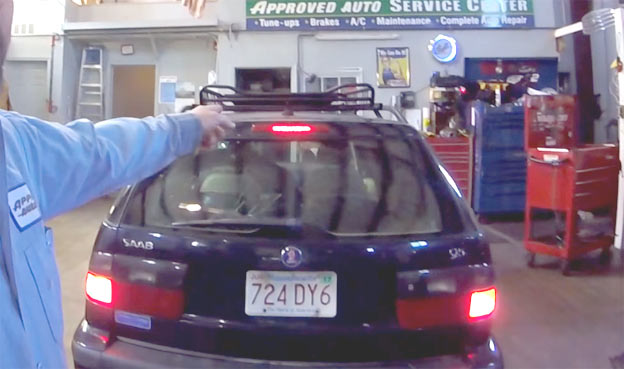Saab’s innovative spirit, rooted in its aviation heritage, led to a groundbreaking partnership in airport safety technology. This collaboration, which flourished even after General Motors’ partial acquisition of Saab, saw Scandinavian Airport and Road Systems (SARSYS-ASFT) refine the brand’s specialized division. Among the standout creations of this synergy is the Saab 9-5 Arc wagon, a vehicle that embodies meticulous engineering and serves as a testament to Saab’s commitment to advancing runway safety in diverse and challenging conditions.
Runway friction testing is a critical component of airport safety, especially during inclement weather. This vehicle’s modifications enable precise measurements of runway grip levels, reducing the risk of aircraft hydroplaning during takeoff and landing—an innovation that has likely prevented countless accidents.
SARSYS’s roots in developing friction-testing vehicles trace back to their first production batch, including the Saab SFT13, which set industry benchmarks. The compact and fully integrated friction-measuring systems allow for immediate data analysis, giving airports actionable insights to maintain safety standards.
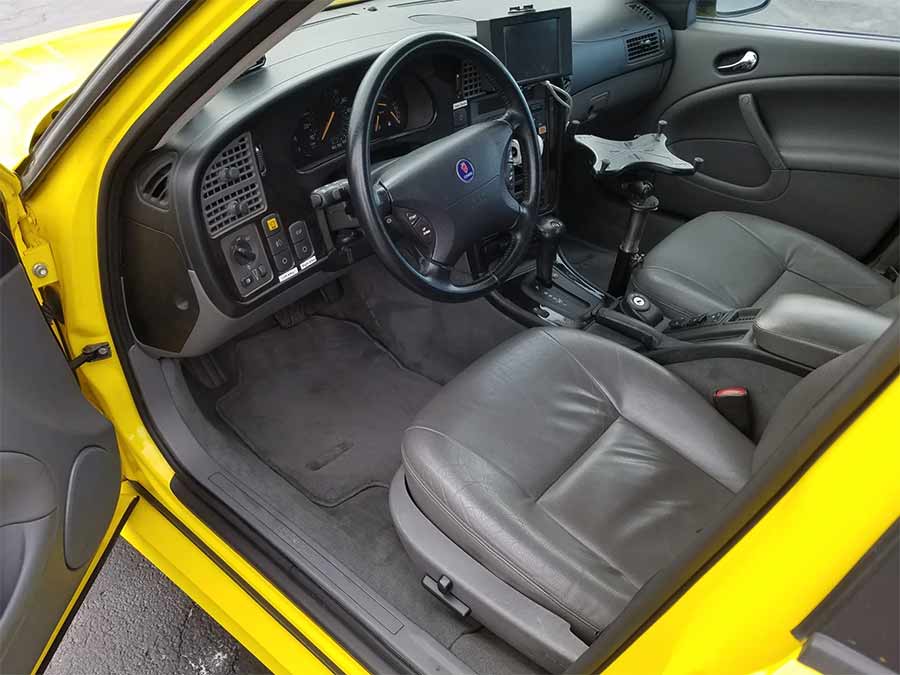
Table of Contents
Specialized Modifications for a Specialized Mission
When this SAAB 9-5 Arc wagon was transformed into a friction tester, it underwent significant modifications to meet the rigorous demands of its airport role. Externally, it was repainted from its factory Polar White to a striking yellow for high visibility. A retractable friction-testing wheel and water delivery systems were installed, with the spare tire well partially removed to accommodate the testing equipment. Additional features include a roof-mounted water port and a light bar, emphasizing its unique function.
Inside, the rear seats were replaced with a water tank and pump system, while the cabin received retrofitted control systems for monitoring surface conditions. These controls allow operators to simulate wet conditions on the runway, using a regulated spray of water to assess friction levels under various scenarios. Despite these changes, the vehicle retains much of its original luxury, including heated, power-adjustable leather seats, wood veneer trim, and automatic climate control.
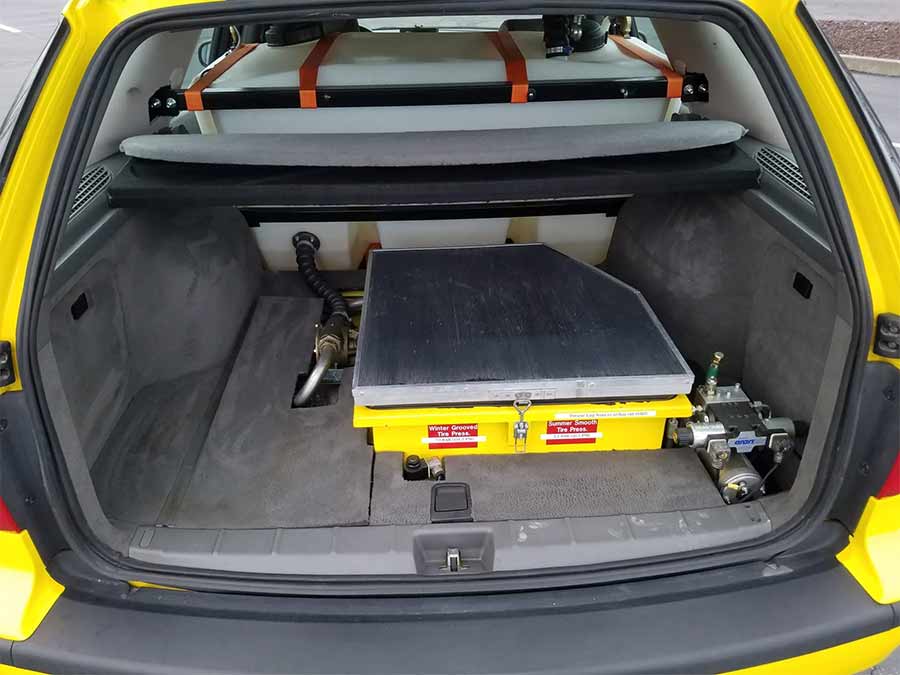
This generation of SARSYS-modified vehicles also included upgrades like dynamic wheel slip calibration, ensuring unmatched precision in readings. The retractable auxiliary wheel could test varying runway conditions in real-time, while the central system processed friction data with speed and accuracy, setting this model apart in both innovation and usability.
Performance That Matches Its Pedigree
Powered by a turbocharged 2.3-liter inline-four engine, this Saab produces 220 horsepower and 228 lb-ft of torque. The five-speed Sentronic automatic transaxle ensures smooth power delivery to the front wheels, making it equally adept at handling snowy runways or suburban streets. Its ventilated disc brakes provide excellent stopping power, a critical feature for both its original airport duties and everyday driving.
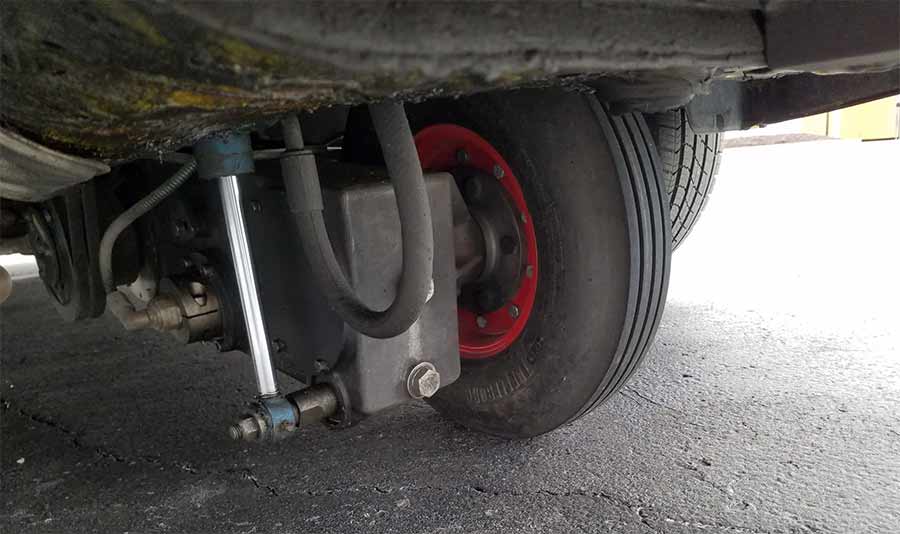
The testing equipment itself is a marvel of precision engineering. The retractable auxiliary wheel, controlled electronically, gathers real-time data on surface conditions, relayed through the central touchscreen interface. This setup exemplifies Saab’s aviation roots, as the brand applied aerospace-grade engineering to automotive challenges.
Complementing the auxiliary wheel is a water tank capable of dispensing a controlled spray to simulate wet runway conditions. This system can replicate specific depths, allowing operators to test friction levels under diverse scenarios—a feature that has made SARSYS systems invaluable to airports worldwide.
Preservation Through Purpose
One of the most intriguing aspects of this vehicle’s history is how its airport role contributed to its preservation. The FAA’s stringent regulations on runway de-icing preclude the use of corrosive chemicals like salt, protecting this Saab from the wear that plagues many vehicles. This careful stewardship is evident in its condition, with minimal rust, a clean undercarriage, and an intact suspension.
Adding to its preservation is the relatively low mileage for its age. Serving primarily within the confines of the Salt Lake City International Airport, this 9-5 avoided the stresses of daily commuter traffic. Instead, its life consisted of measured runs along well-maintained runways—a far cry from the typical wear-and-tear experienced by most vehicles.
Current Condition and Accessories
The vehicle remains in excellent mechanical and aesthetic condition, a rarity for any car that has spent years in a professional capacity. Recent maintenance includes an oil change under its current owner. Minor blemishes, such as a ding on the left-rear wheel arch and a crack below the right fog light, do little to detract from its overall appeal.
Included with the sale are spare test wheels, SARSYS operation manuals, and a 2022 calibration certificate, further enhancing its value as a collectible. The vehicle’s bright yellow paint and distinctive features are sure to turn heads, whether on the road or at car shows.
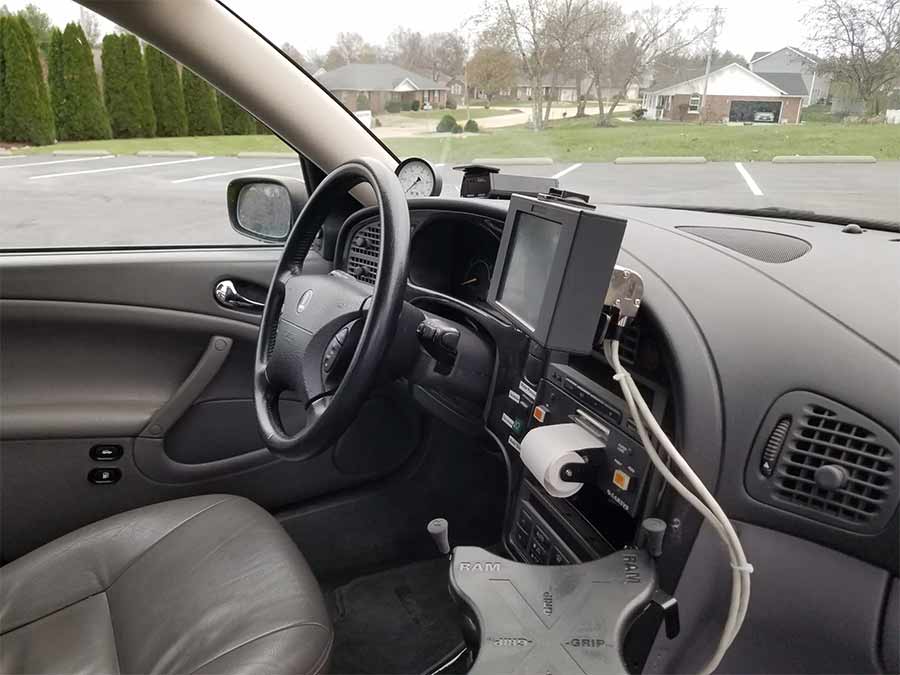
A Unique Opportunity for Saab Enthusiasts
For collectors and enthusiasts, this 2004 Saab 9-5 Arc wagon represents a chance to own a piece of both Saab’s automotive legacy and aviation safety history. Its combination of low mileage, specialized modifications, and pristine condition make it a standout offering. Whether you’re a Saab aficionado, a fan of unique utility vehicles, or an aviation enthusiast, this one-of-a-kind 9-5 is a vehicle that bridges worlds and turns heads.
In an era when functional design often takes a backseat to aesthetics, this friction tester reminds us of Saab’s commitment to solving real-world problems with creativity and engineering expertise. The winning bidder won’t just own a car—they’ll own a story.
Bid Now to secure a piece of Saab’s history that truly sets itself apart. The auction currently stands at $7,595, with only a few hours left to place your bid. Don’t miss this opportunity to own a rare and iconic vehicle.








